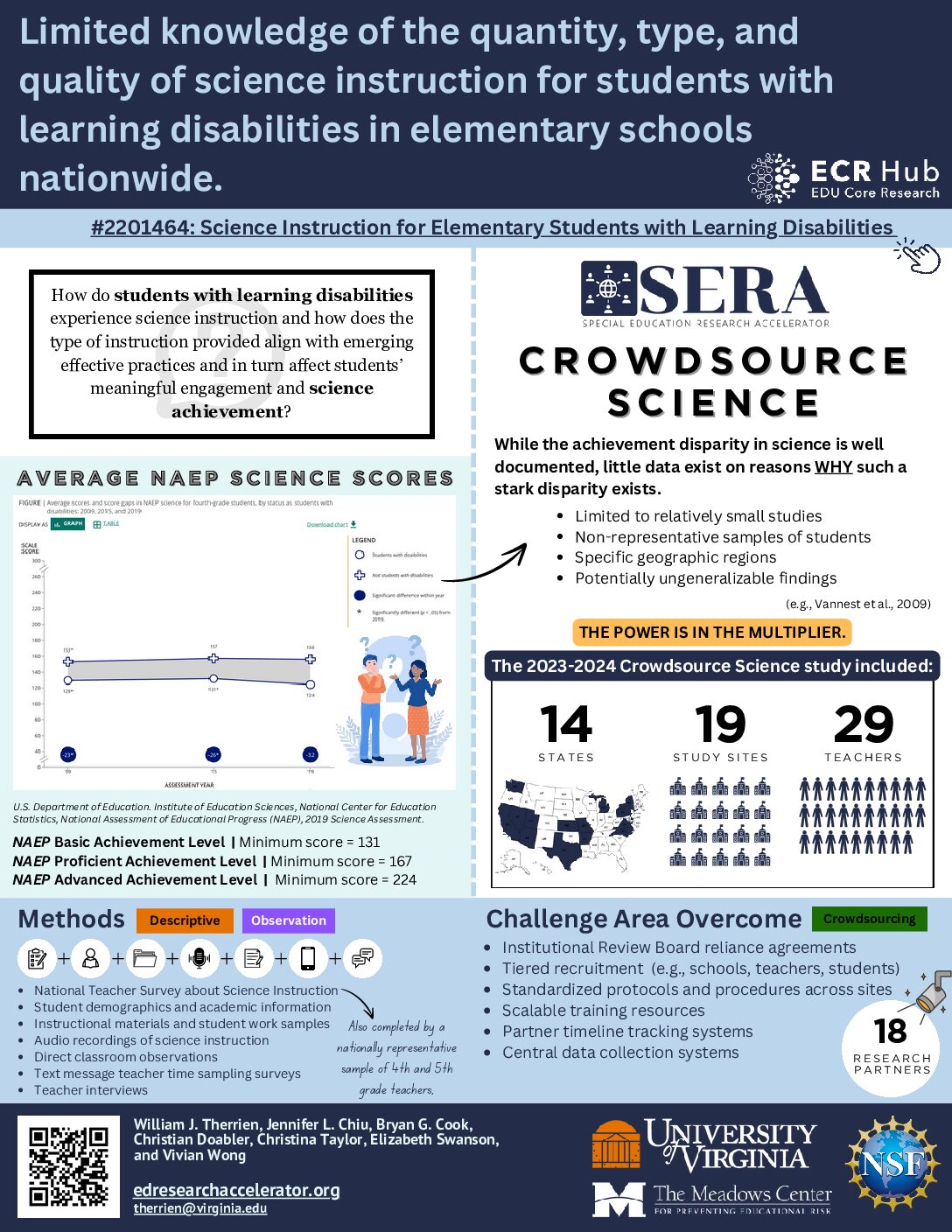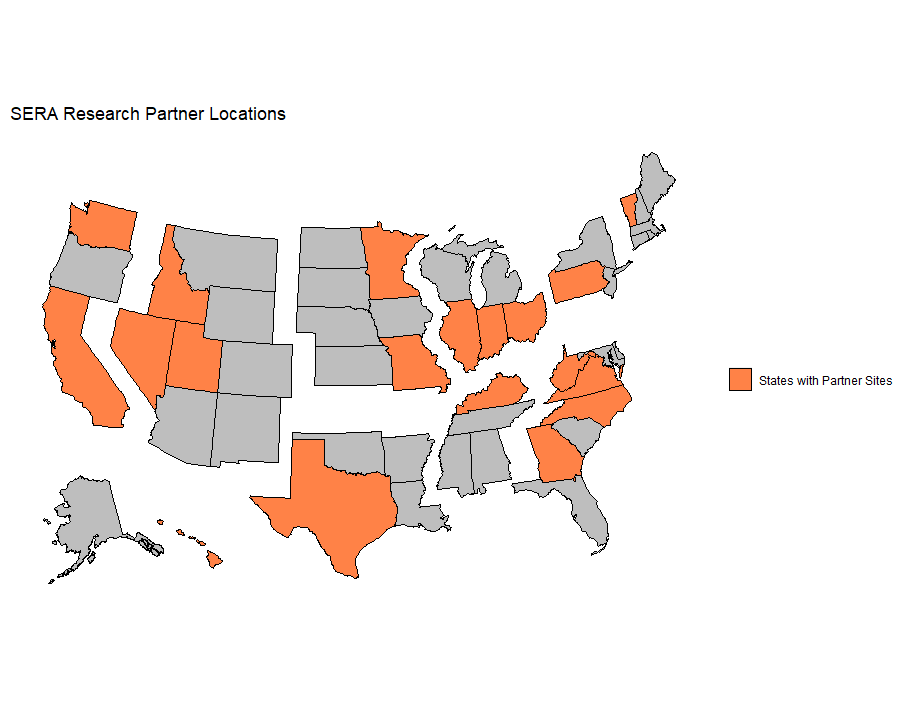SERA Blog
Crowdsource Science: Science Instruction for Students with Learning Disabilities
Crowdsource Science project, a nationally representative observation study funded by the National Science Foundation’s EDU Core Research (ECR) program, aims to illuminate what science instruction looks like for students with learning disabilities, addressing the documented achievement gap and providing insights to better support these learners.
Continue Reading Crowdsource Science: Science Instruction for Students with Learning Disabilities
Study Recap: The SERA Pilot Study (2021-2022)
To pilot our crowdsourcing platform and process, we designed an experiment to test the effects of prompting elementary students with high-incidence disabilities to generate explanations on remembering animal facts. In a previous study, Scruggs and colleagues (1994) found that students who generated their own explanations had significantly greater immediate and delayed recall (after one week)…
Continue Reading Study Recap: The SERA Pilot Study (2021-2022)
SERA2: Identifying Generalization Boundaries
SERA2 will expand SERA by developing and piloting procedures and supports for crowdsourcing the development of lines of inquiry to systematically investigate effect heterogeneity for the purpose of estimating generalizability boundaries.
Continue Reading SERA2: Identifying Generalization Boundaries
SERA Pilot Study Internal Review: UNCW Research Team
One of the seven research teams we worked with throughout the SERA Pilot Study was the team at University of North Carolina Wilmington (UNCW). The UNCW research team included Dr. Amelia Moody, Dr. James Stocker, Dr. Sharon Richter, and Racheal Gliniak (graduate research assistant).
Continue Reading SERA Pilot Study Internal Review: UNCW Research Team
The Design of Systematic Replication Studies
This work introduces the Causal Replication Framework (CRF), which defines replication as a research design that tests whether two or more studies produce the same causal effect within the limits of sampling error.
Continue Reading The Design of Systematic Replication Studies
Crowdsourcing & Open Science
Although open science and crowdsourcing are independent constructs (i.e., research that is open is not necessarily crowdsourced, and crowdsourced studies are not necessarily open), the two approaches are closely aligned and complementary. The ultimate goal of both open science and crowdsourcing is to improve the validity and impact of research.
Crowdsourcing Research Primer
In crowdsourced research, resources are combined across researchers to conduct studies that could not be accomplished on their own.
Developing and Piloting the Special Education Research Accelerator
Please see our first blog post from the Institute of Education Sciences.
Continue Reading Developing and Piloting the Special Education Research Accelerator
Welcome to the Special Education Research Accelerator
We are pleased to welcome you to the Special Education Research Accelerator (SERA). SERA is a platform for crowdsourcing data collection in special education research across multiple research teams.
Continue Reading Welcome to the Special Education Research Accelerator





